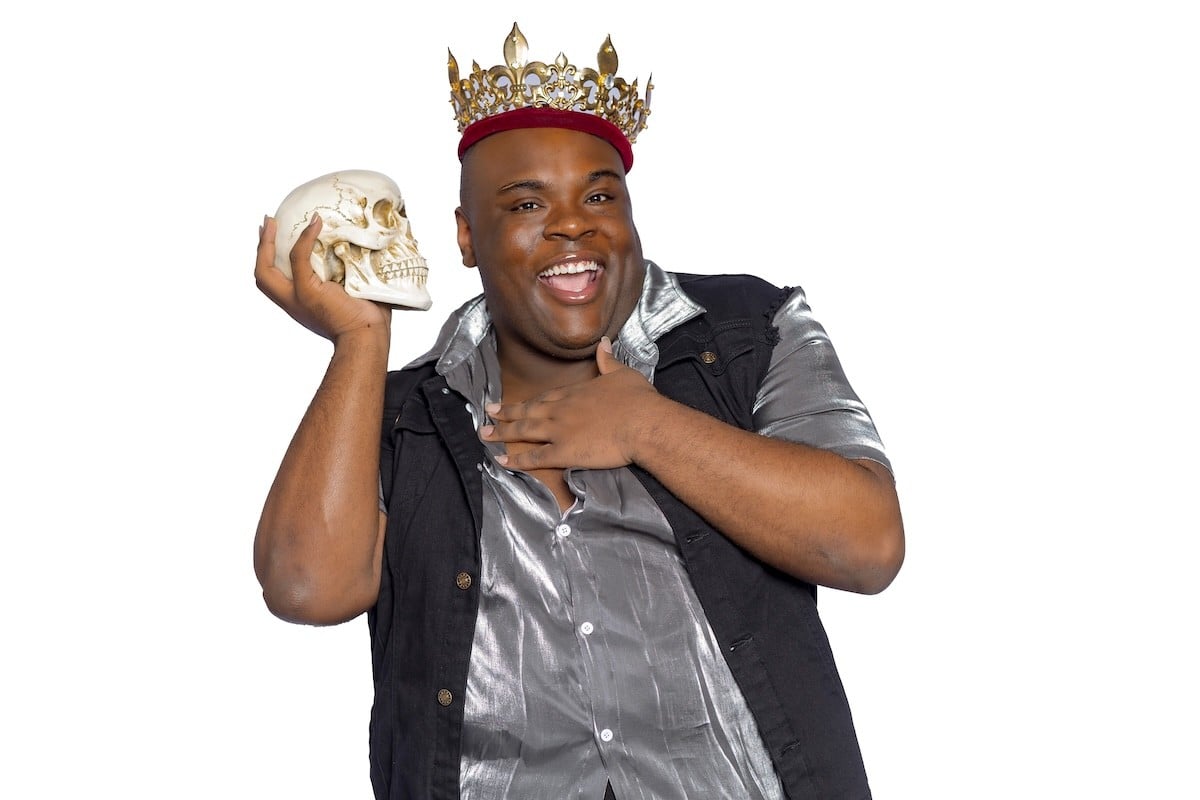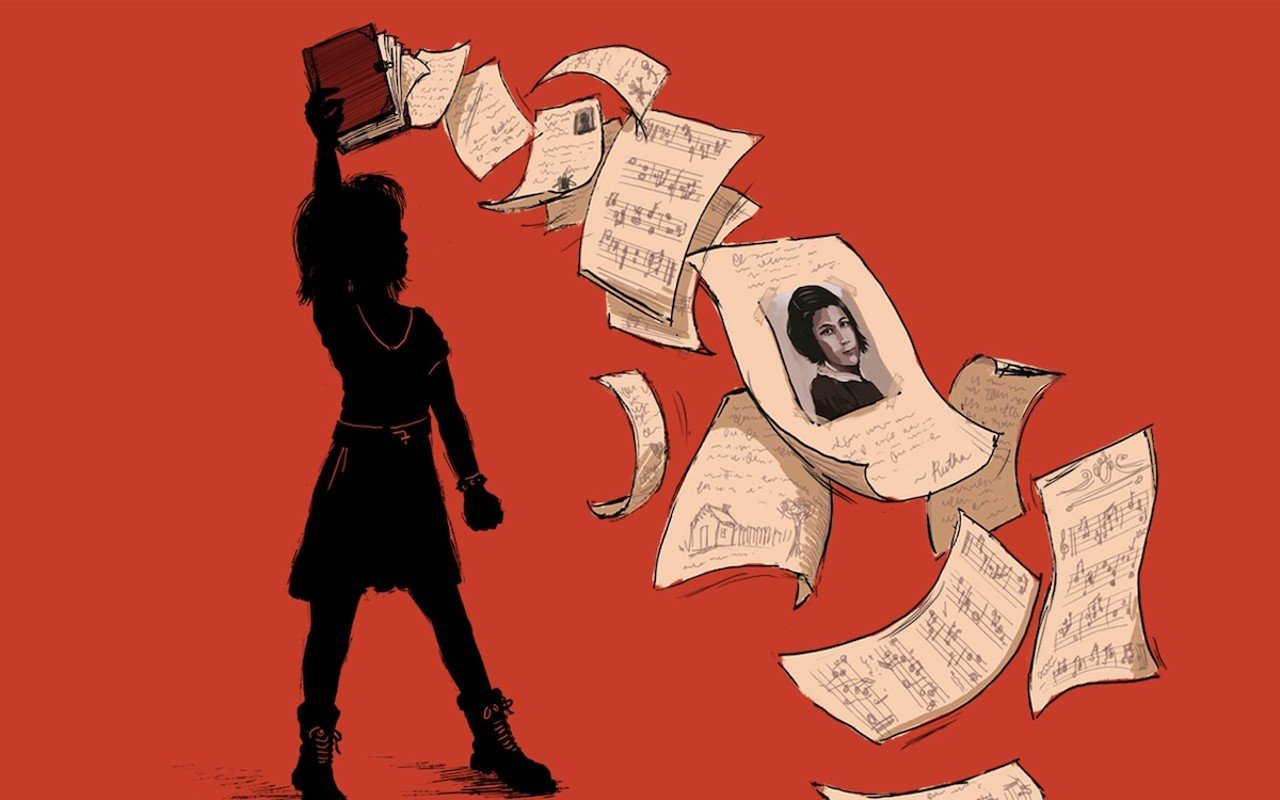Playwright James Ijames said in a recent interview with American Theatre magazine, “I have always loved Hamlet, and I wanted to bring it a little closer to my experience and to write it in the voice of my family, who are from the South.” Fat Ham, the play he wrote based on this inspiration, might seem, at first glance, like a modern-day adaptation of Shakespeare’s great tragedy. But Ijames’ script has been characterized as a comedy, and Ijames calls it a love letter to his family. So what is it? The playwright explores big issues (toxic masculinity, cycles of violence), portraying them with a sense of humor. His play — unlike its Elizabethan source — ends with a happy backyard barbecue rather than a stage littered with bodies.
Ijames has reinvented Shakespeare’s masterpiece. His central character, Juicy, as described by the playwright “is thicc [slang for a person with fat in the right places, creating sexy curves], 20-21, Black. He’s beautiful. He is lonely. He is smart. A kind of Hamlet.” Rooted in the indecisive Prince of Denmark, Juicy is definitely of the 21st century: He’s a young, queer Black man, wrestling with questions of identity. Into his meditation before guests arrive for a backyard cookout, the ghost of his father turns up, insisting that Juicy avenge his murder. Sounds like Hamlet, right? But Juicy dodges that request as he strives to escape cycles of trauma and violence.
Fat Ham won the 2022 Pulitzer Prize for drama. The play’s regional premiere is kicking off the fall season at Cincinnati Shakespeare Company this week. Local theater veteran Darnell Pierre Benjamin is staging the show. In a recent phone interview with CityBeat, he said, “What James has done so beautifully is adapt Hamlet, but he truly went all the way by setting it in a world that is different, a world of people that is different. When I think about the existence of Black identity and the journey of what it is to keep going as each day goes by, it’s a long history of tragedy. As a culture we’ve found every chance that we can laugh, that’s what we do.”
Benjamin – himself a sensitive, self-aware, thoughtful, queer Black man – said, “It’s my plan not to steer away from the tragedy of it all. I want to be absolutely sure that we are being honest with everything. Comedy is meant to be played truly and not just for the laughs. If you play it truly, the audience is going to laugh.” Just as modern audiences trust Shakespeare’s insights, “We’re putting trust in the text, which already has all the pieces. We’re just going to have to say the words and trust that that’s enough.”
Audiences at Cincy Shakes familiar with Shakespeare’s play will recognize occasional references that Ijames drops in, for example, the sense of “to be or not to be” is not about Juicy in the way it was about Hamlet pondering his future. Juicy is unwilling to carry out yet another act of violence in response to a prior murder.
But he is wrestling with how to move forward. More than once he directly addresses his inner thoughts to the audience, just like an insightful “aside” by a Shakespearean character. Juicy’s decisions affect those around him. “It’s not him that changes in the play,” Benjamin pointed out. “It’s the world around him that starts to change. It’s because he stakes his ground; he holds his place and makes the world he wants to live in. … He stands firm in his identity.”
Benjamin feels like Ijames is mocking the toxicity of it all. “He’s absolutely revealing it in its rawest form and saying, ‘Everybody look at this. Is this what we want?’ For me, when it comes down to the ending and they all consider killing each other, there is something so powerful about that moment — they actually consider it and quickly realize that, ‘No, the problem is gone.’ We don’t feel that rage anymore, that sense of angst.”
Rather than celebrating Juicy’s bullying uncle’s death (Rev chokes on some pork while refusing to let Juicy save him), the gathered clan are “celebrating freedom from the toxic man-of-the-family,” says Benjamin. “There’s something that happens when that energy shifts. Once Rev is out of the picture, they realize, ‘We don’t have to be angry. We don’t have to hang onto this hate. We actually can enjoy ourselves.’”
Benjamin believes people can relate to this story at a backyard barbecue, “with all the dynamics that happen when a family comes together.” It’s an uncomfortable event: Juicy’s mother “Tedra” has married his uncle “Rev.” Nevertheless, following Juicy’s lead and his unwillingness to perpetuate violence, things turn out differently than Hamlet. Benjamin urges people to see Fat Ham because “it’s packed with joy, and it’s hilarious.” In fact, he added, “James Ijames puts the ‘ham’ in Hamlet! That’s what he does. It’s intentionally silly.”
“People will see reflections of themselves, of their friends,” Benjamin said. “So you get to rejoice in those things that are familiar and laugh at the uncomfortable. This is funny, and it’s okay to laugh at the tragicalness of it all.”
Fat Ham, presented by Cincinnati Shakespeare Company at its Otto M. Budig Theatre, opens Sept. 6 and continues through Sept. 22. More info: cincyshakes.com.
This story is featured in CityBeat's Sept. 4 print edition.









